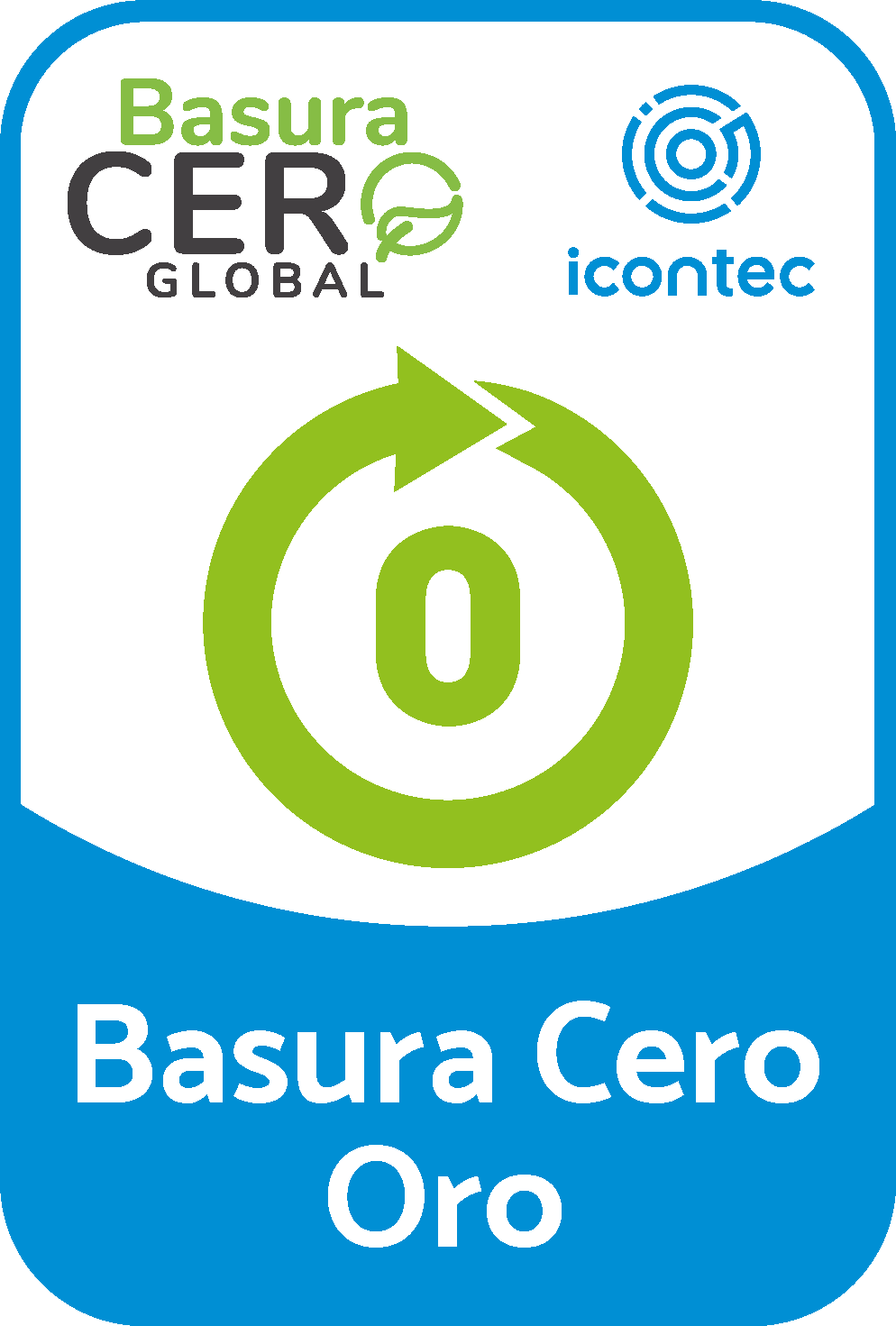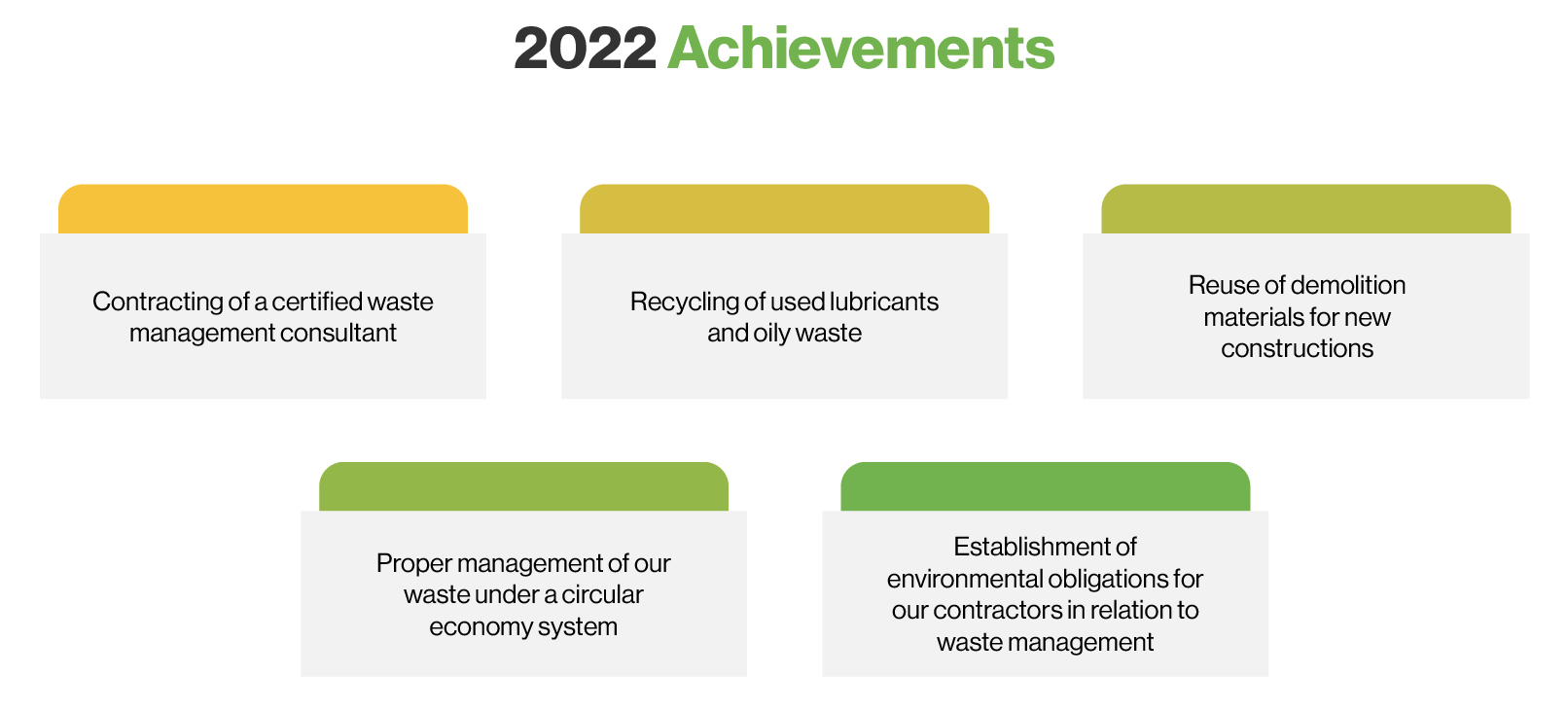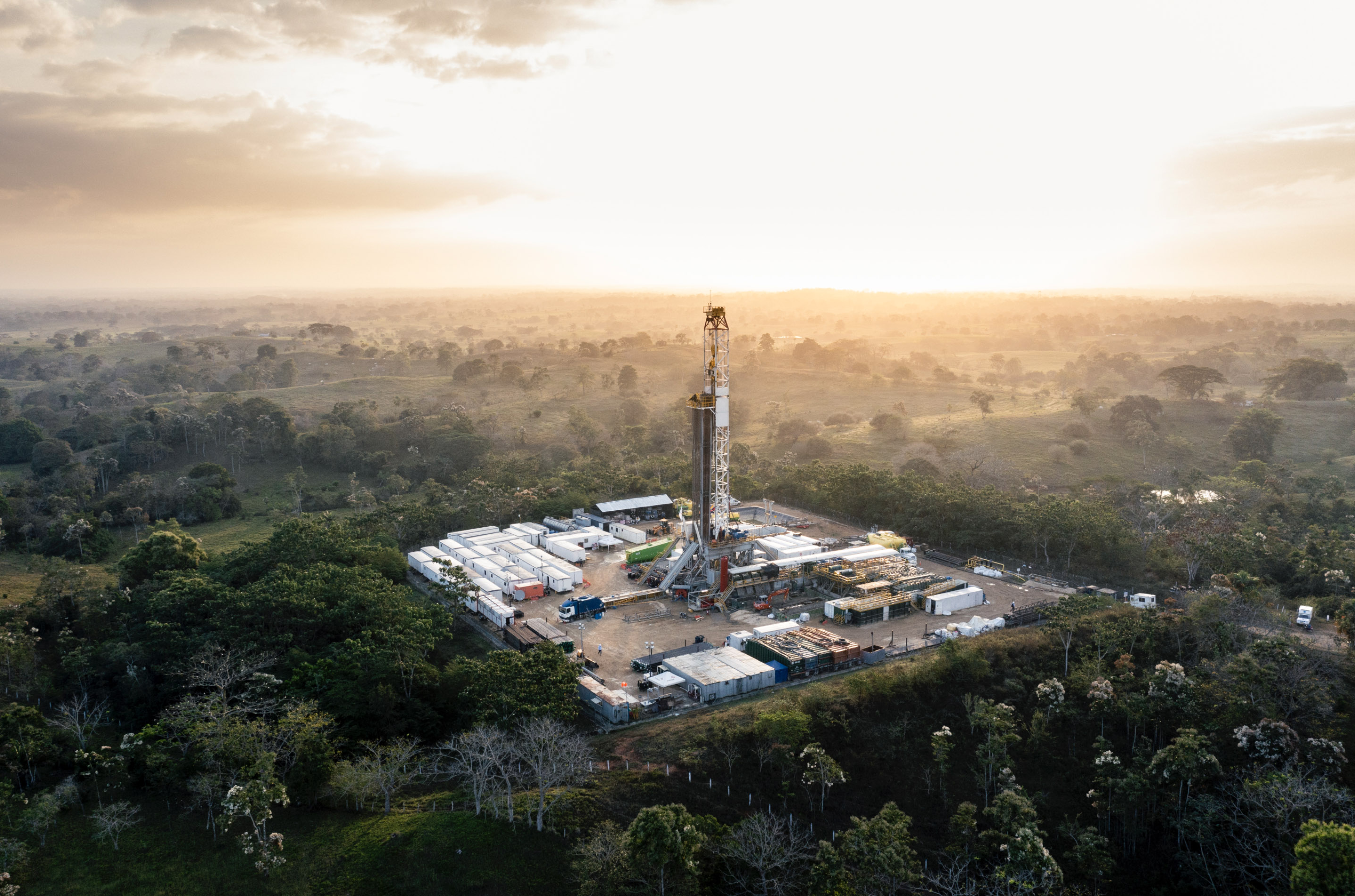Waste Management
At Canacol, we approach waste management with a proactive and sustainable mindset guided by the principles of a circular economy. Acknowledging the importance of minimizing the environmental footprint of waste from our operational activities, we actively strive to implement innovative and responsible practices that emphasize reduction, reuse, and recycling.
Aligned with the National Circular Economy Strategy (ENEC), we are committed to integrate in our practices the valuation of waste. This involves the reuse of construction and demolition waste (RCD), excavation materials, fostering closed material cycles, and extending the lifespan of equipment. Notably, our management approach emphasizes cogeneration, as we endeavor to convert waste into valuable energy sources. Furthermore, we emphasize that all waste generated from drilling activities is treated using natural dewatering methods, exclusively utilizing biodegradable absorbent polymers. This approach has enabled us to eliminate the need for parent material and reduce the demand for additional disposal space.
Our comprehensive waste management is conducted across the entire value chain, prompting us to advocate for sustainable and responsible practices among our suppliers. To ensure excellence in performance, we have established an environmental addendum that outlines both general and specific guidelines for activities conducted by our suppliers, especially those that have environmental implications. With respect to waste management for our suppliers, we require the following:
- Delivery of an Environmental Quality Plan (EQP).
- Compliance with the solid and hazardous waste management plan established by the Company.
- Licenses or permits for final disposal of hazardous, organic, and non-reusable waste, both from operated and subcontracted activities.
- Contingency Plan of the hazardous waste transportation company and administrative act approving the PDC before the environmental authority.
- Construction and demolition waste management plan specifying if waste will be taken to landfill or will be reused if it is approved by the company's environmental department.
Waste Management Programs:
- Waste audits to identify opportunities for improving waste performance: As part of its waste management strategy, Canacol collaborates with Global Zero Waste to receive technical advice and identify recovery projects that improve reduction, reuse, and recycling indicators. Additionally, audits were conducted by ICONTEC to obtain the Zero Waste certification.
- Action plans to reduce waste generation: In our waste strategy titled "Zero Waste," we set goals and objectives aimed at reducing, reusing, and recycling the various types of waste we produce. Among these initiatives are reverse logistics strategies (returning used oil to the supplier), extending the useful life of high-turnover parts and equipment, reusing construction and demolition waste, managing industrial plastic and metal materials, cogeneration initiatives with hazardous and ordinary waste, and composting organic waste. Additionally, we have community projects for training in waste management and for participating in various post-consumer waste initiatives with the communities in our area of interest.
- Quantified targets to minimize waste: We have taregts for waste reduction, reuse, and recycling within the framework of the Zero Waste management system, focusing on utilizing at least 34% of the waste generated in our operations.
- Investment in innovation or R&D to minimize waste: We have an agreement for the installation of a composter where we process all the organic vegetable waste from our main station, with the aim of converting it into compost and using it in our community initiatives for tree planting and the donation of materials for agriculture. Additionally, we are developing a project in collaboration with a parts supplier, where worn-out parts are provided for remanufacturing processes to extend the life of certain instruments used in production.
- Waste reduction training provided to employees: We continuously implement prevention, training, and awareness initiatives with our employees and communities to raise awareness about various environmental issues, including proper waste management.
- Integration of recycling programs to reduce the waste sent to landfill: To reduce waste destined for landfills, we have established goals and objectives focused on the reduction, reuse, and recycling of the various types of waste we produce. These initiatives include reverse logistics (returning used oils to the supplier), extending the useful life of high-turnover parts and equipment, reusing construction and demolition waste, managing industrial plastic and metal materials, cogeneration initiatives with hazardous and ordinary waste, and composting organic waste.
Additionally, we have community projects aimed at training in waste management and participating in various post-consumer waste initiatives with communities in our area of interest.
- Waste diversion from landfill is certified by an independent accredited body: We have authorized waste managers to process our waste. They issue various certificates depending on its disposition, whether it is reincorporated into new production processes or sent to a landfill. These certificates contain relevant information, which is reviewed by the National Environmental Licensing Authority (ANLA) as part of its competencies and ongoing monitoring of our projects.
Our Objectives
Canacol has set the following goals in relation to solid waste:
 |
|
Our Achievements
Below we present our achievements in waste management.
For additional information on waste management, please refer to the 2023 ESG report.
No Hydrocarbon Spills
We operate the Rancho Hermoso oil field through a participation agreement with Ecopetrol, with Ecopetrol holding the environmental license under its contract with the ANH. Canacol is responsible for ensuring compliance with environmental regulations. In 2023, Canacol remained incident-free with regards to hydrocarbon spills Data on hydrocarbon spills were audited by the National Authority of Environmental Licenses (ANLA) and the ANH. Our strategy for spill identification and prevention involves ongoing monitoring of our wells, collection systems, and plants. Furthermore, we maintain a robust mechanical integrity and maintenance system.
| Proper management of our waste under a circular economy system. |
Establishment of environmental obligations for our contractors in relation to waste management.
|
For further information on the management of our hydrocarbon spills, please refer to the 2023 ESG report.


